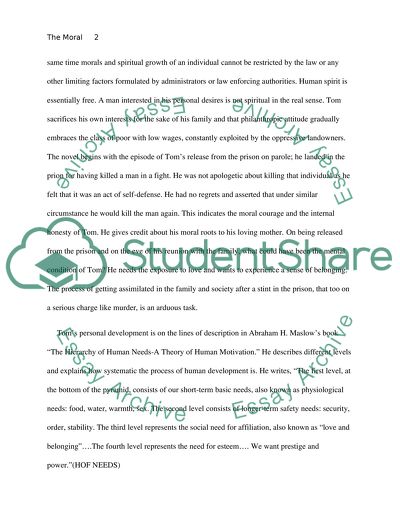Cite this document
(“The Moral Development of Tom Joad in the Grapes of Wrath Essay”, n.d.)
Retrieved de https://studentshare.org/literature/1459466-your-choice-of-topic
Retrieved de https://studentshare.org/literature/1459466-your-choice-of-topic
(The Moral Development of Tom Joad in the Grapes of Wrath Essay)
https://studentshare.org/literature/1459466-your-choice-of-topic.
https://studentshare.org/literature/1459466-your-choice-of-topic.
“The Moral Development of Tom Joad in the Grapes of Wrath Essay”, n.d. https://studentshare.org/literature/1459466-your-choice-of-topic.


